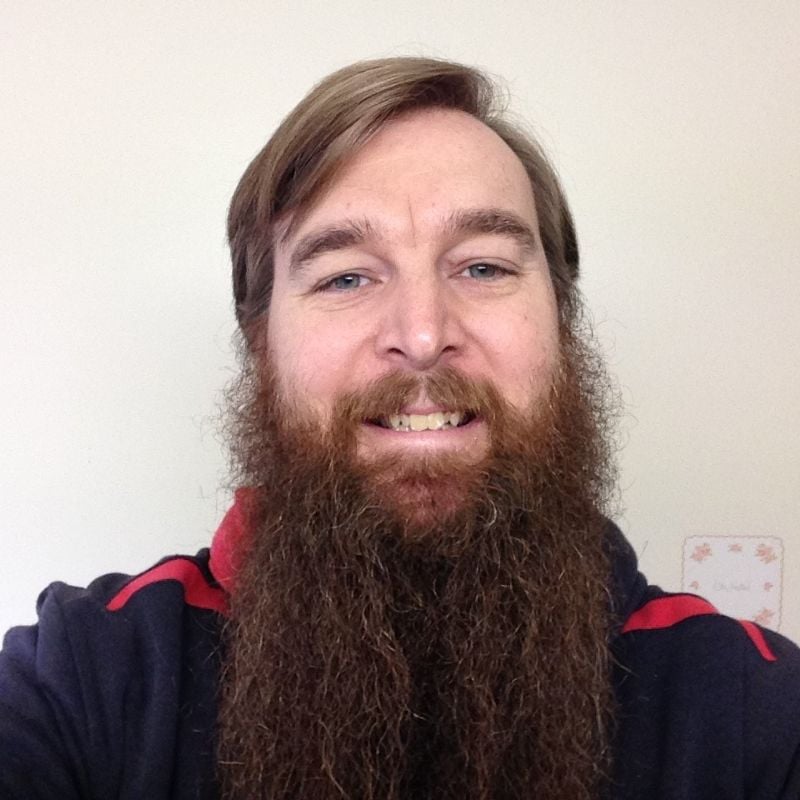Why are First Nations perspectives sidelined in our science curriculum?
Research news
Summary
- A new Deakin study examines First Nations perspectives in Australia’s latest Science Curriculum (Version 9).
- The research reveals a curriculum that’s still largely framed by Eurocentric content and Western ways of conceptualising and teaching science.
- There’s potential for a transformative and groundbreaking curriculum, one that deeply values and integrates First Nations science capital.
In a new study published in the International Journal of Science Education, Deakin University’s Dr Al Fricker and colleagues examine First Nations perspectives in the latest Australian Science Curriculum (Version 9).
A proud Dja Dja Wurrung man, Dr Fricker is a Lecturer of Indigenous Education whose research focuses on decolonising our classrooms and elevating Indigenous knowledges and perspectives.
'I never learnt that in school'
When it comes to the history and expertise of Indigenous Australians, how often have you heard someone say, ‘they didn’t teach me that in school’? In fact, you’ve probably said it yourself.
Over recent years, revisions to our national school curriculum have looked to embed Indigenous perspectives. But Dr Fricker’s analysis reveals that Australia’s latest science curriculum continues to overlook and silence the rich contributions of First Nations communities.
It raises questions as to why the knowledge systems of the world’s oldest continuous cultures aren’t integrated into our nation’s curriculum and teachings.
What First Nations perspectives are missing from our science curriculum?
The study reveals that our new national science curriculum features suggestions related to First Nations knowledge and contexts. But they are mostly offered to educators as optional.
‘This significant oversight not only undermines the science capital of First Nations people but promotes a narrow Eurocentric view of science,’ Dr Fricker says.
‘One of the great challenges of the new curriculum relates to the positioning of First Nations science. Most of the material relating to Indigenous knowledge and perspectives has been placed within the “elaborations” section - a voluntary suggestion rather than as a content descriptor which is compulsory to be taught. In addition, the First Nations content has been disaggregated and there is little continuity between the places where it’s mentioned.'
What could an inclusive, reimagined science curriculum look like?
The study advocates for co-designing learning experiences with First Nations communities to ensure local relevance and embed Indigenous perspectives.It highlights how such partnerships can enrich the exchange of science capital and contribute to a more holistic understanding of science.
As the study reveals, First Nations science consists of locally adapted knowledge forged from deep knowledge and connection to Country, combined with understandings and application of scientific principles and beliefs about relationality, relationships and storytelling.
‘A more inclusive science curriculum is one where we not only teach First Nations science and concepts, but also introduce students to the ways that science is conceptualised,’ says Dr Fricker.
‘We move away from the clinical Western science method, and embrace the relational, proximal, and embodied science method present in First Nations science such as representation through storytelling.’
Dr Fricker says a more inclusive science curriculum would have truth-telling and justice at its heart and would allow students to understand the importance and impact of the oldest scientific practices and knowledge in the world. It would highlight that science on the Australian continent pre-dates the arrival of the Europeans by many tens of thousands of years.
What impact could this have on students?
'For First Nations students, this is about visibility, engaging with culture and knowledge, and seeing themselves reflected in their curriculum. It’s also about ensuring the ways we teach are culturally responsive and appropriate,’ says Dr Fricker.
‘For all students, this improves accessibility, academic outcomes and the understanding of science in general.
‘It would also allow all students to better understand their responsibilities to apply science to care for Country regardless of their own cultural contexts as custodians of the future.’
What does this year’s NAIDOC Week theme mean to you?
‘In the wake of the result of the Voice referendum and the rise of racism in Australia, this year's NAIDOC theme -“Keep the fire burning - Blak, Loud & Proud “- is a call to Mob that we see you, we love you and we know you're out there doing deadly things!’ says Dr Fricker.
‘For Whitefullas "keep the fire burning" is a call to arms, that despite the setbacks of the referendum, we are still fighting for justice, and we need Deadly comrades to join us in this struggle to dismantle the neo-colonial systems and structures that oppress us.
‘It’s only through coming together, hearing truth and seeking justice that we can move forward as a nation.’
About Dr Al Fricker

Dr Aleryk (Al) Fricker is a Dja Dja Wurrung man born in Naarm, Victoria. He works as a Lecturer in the NIKERI Institute in Deakin's Faculty of Arts and Education.
Dr Fricker’s scholarship focuses on the research that justifies the need for decolonisation, and the practical outcomes and applied processes for school leadership, classroom teachers, curriculum designers and school communities that can support the educational outcomes of all, and especially First Nations students.
The text of this article is licensed under the Creative Commons Attribution (CC BY) 4.0 International license. We'd love for you to share it, so feel free! Please note that images, videos, graphics and logos are not covered by the CC BY license and may not be used without permission from Deakin University or their respective copyright holder. If you have any questions, please contact researchcomms@deakin.edu.au.
Thanks for reading! You can find more stories like this at deakin.edu.au/research/research-news-and-publications. We ask that Deakin University and individuals are appropriately credited and that you include links back to this website. Quotes in this article can be extracted for other articles provided individuals are appropriately credited and you include a link back to the article URL.
Share this story

Key Fact
A new study reveals the need for an inclusive Australian science curriculum where First Nations perspectives are elevated.
